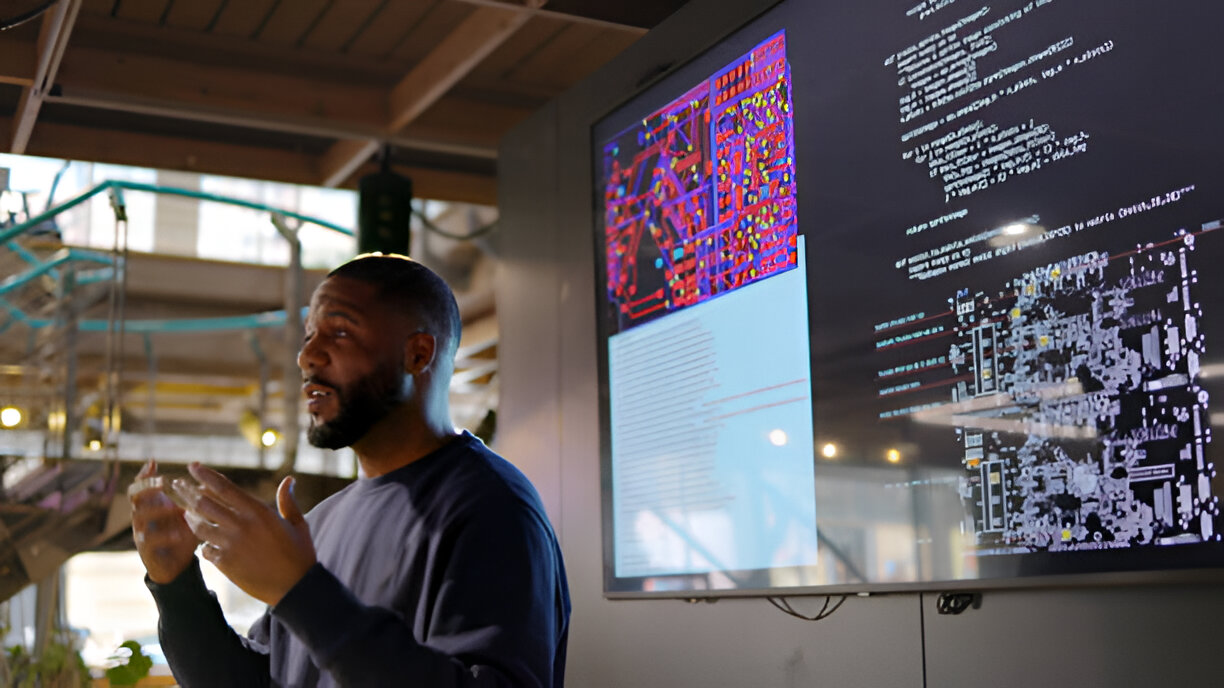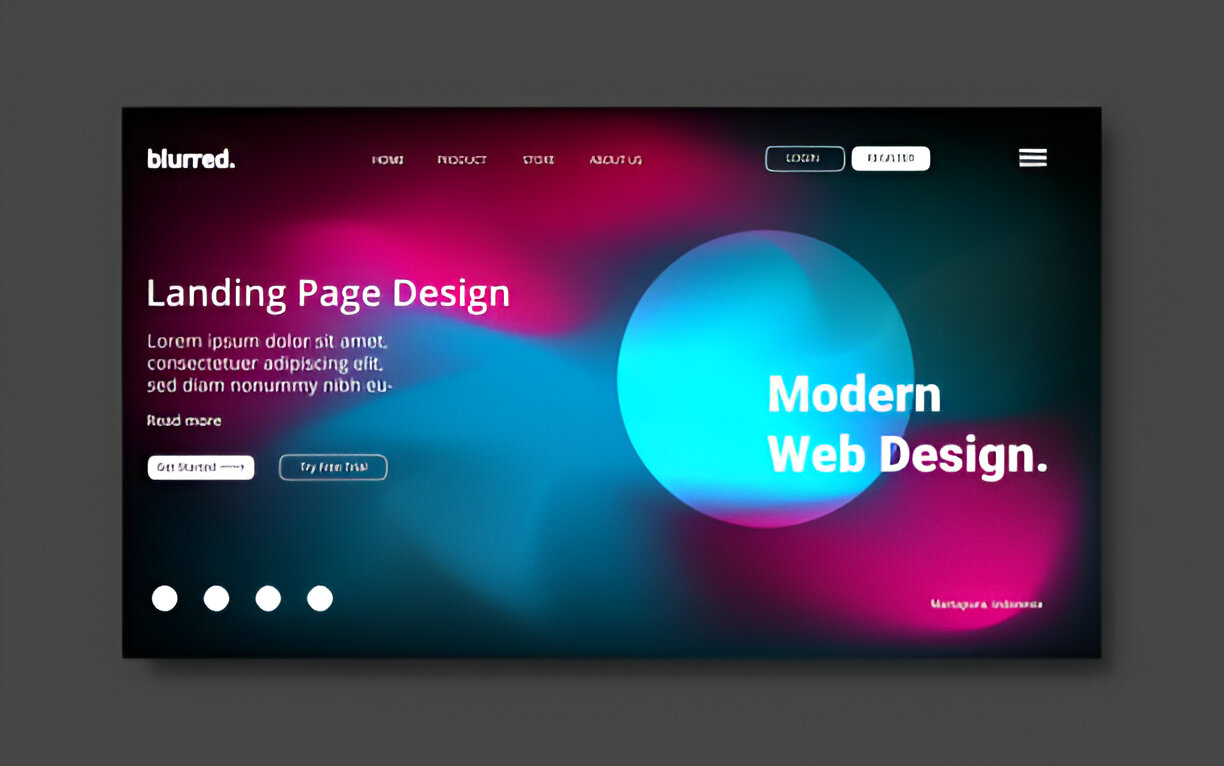
Unleashing Your Inner Programmer: Become a Coding Pro Today!
Why Learn to Code?
The world we live in is increasingly driven by technology, and coding has become an essential skill across various industries. Learning to code opens up a world of opportunities and can have a profound impact on your personal and professional life.
One of the primary reasons to learn coding is the sheer versatility it offers. Coding skills can be applied to a wide range of fields, from web development and mobile app creation to data analysis and artificial intelligence. By mastering the art of coding, you can create innovative solutions, automate tedious tasks, and even start your own tech-based business.
Moreover, the demand for skilled coders continues to grow at a rapid pace. According to the U.S. Bureau of Labor Statistics, employment in computer and information technology occupations is projected to grow 13% from 2019 to 2029, much faster than the average for all occupations. This means that by learning to code, you can position yourself for a rewarding and in-demand career path.
Benefits of Becoming a Coding Pro
Becoming a coding pro offers a wealth of benefits that can positively impact your life. One of the most significant advantages is the increased earning potential. Skilled coders are highly sought after in the job market, and they often command higher salaries compared to their non-coding counterparts. This can open up new financial opportunities and allow you to achieve your personal and professional goals more easily.
Another key benefit of becoming a coding pro is the enhanced problem-solving and critical thinking skills you'll develop. Coding requires you to break down complex problems, analyze them, and devise creative solutions. These skills are highly transferable and can be applied to a wide range of tasks, both in the workplace and in your personal life.
Moreover, learning to code can boost your confidence and sense of accomplishment. As you progress in your coding journey, you'll experience the satisfaction of creating something from scratch, seeing your ideas come to life, and overcoming challenging obstacles. This sense of achievement can be incredibly empowering and can positively impact your overall well-being.
Programming Languages for Beginners
One of the first steps in your coding journey is to choose the right programming language to learn. With a wide array of options available, it can be overwhelming for beginners to decide which language to focus on. However, there are a few programming languages that are particularly well-suited for those just starting out.
Python is a popular choice for beginners due to its simplicity, readability, and versatility. It is a general-purpose language that can be used for a variety of applications, from web development and data analysis to machine learning and automation. Python's syntax is relatively straightforward, making it an excellent starting point for those new to coding.
Another beginner-friendly language is JavaScript. While primarily known for its use in web development, JavaScript has also gained popularity in other areas, such as server-side programming and mobile app development. JavaScript's widespread adoption and the abundance of online resources make it an attractive option for aspiring coders.
Java is another programming language that is often recommended for beginners. It is a statically-typed, object-oriented language that is widely used in enterprise-level applications, Android development, and scientific computing. Java's strong emphasis on fundamental programming concepts makes it a solid choice for those looking to build a strong coding foundation.
Steps to Becoming a Coding Pro
Becoming a coding pro is a journey that requires dedication, persistence, and a willingness to continuously learn. While the path may seem daunting, breaking it down into manageable steps can help you make steady progress and achieve your goals.
The first step is to choose a programming language and dive into the basics. Familiarize yourself with the syntax, data types, control structures, and fundamental programming concepts. Practice writing simple programs and gradually increase the complexity as you gain confidence.
Next, focus on building a strong foundation in computer science principles, such as algorithms, data structures, and problem-solving techniques. These foundational skills will serve you well as you progress in your coding journey, enabling you to tackle more complex problems and optimize your code.
As you become more comfortable with the basics, start exploring real-world applications and projects. Build simple websites, create mobile apps, or contribute to open-source projects. This hands-on experience will help you apply your knowledge, learn new techniques, and gain practical skills that are highly valued in the industry.
Continuous learning and staying up-to-date with the latest trends and technologies are also crucial for becoming a coding pro. Engage with online communities, attend coding meetups, and participate in coding challenges or hackathons. This will not only keep your skills sharp but also expose you to new ideas and perspectives that can inspire your own coding endeavors.
Online Coding Resources and Platforms
In the digital age, there is a wealth of online resources and platforms available to help you on your coding journey. These tools can provide you with structured learning, interactive exercises, and a supportive community to guide you every step of the way.
One of the most popular online learning platforms for coding is Codecademy. Codecademy offers interactive, self-paced courses in a variety of programming languages, including Python, JavaScript, and Ruby. Their hands-on approach allows you to write code directly in the browser and receive immediate feedback, making the learning process engaging and effective.
Another excellent resource is Coursera, which offers a wide range of online courses and specializations from top universities and industry leaders. Whether you're interested in web development, data science, or machine learning, Coursera has a course that can cater to your needs. The platform's certificates and credentials can also be valuable for demonstrating your skills to potential employers.
For a more immersive and community-driven experience, consider platforms like freeCodeCamp and The Odin Project. These platforms provide comprehensive, self-paced curriculums that cover a wide range of coding topics, from front-end development to full-stack engineering. The added benefit of these platforms is the supportive online community, where you can collaborate with fellow learners, ask questions, and receive guidance from experienced coders.
Coding Bootcamps and Courses
While online resources and self-paced learning can be highly effective, sometimes the structure and guidance of a more formal educational setting can be beneficial, especially for those who prefer a more immersive learning experience. This is where coding bootcamps and courses come into play.
Coding bootcamps are intensive, accelerated programs that aim to transform individuals into job-ready coders in a relatively short period of time, typically ranging from 12 to 24 weeks. These bootcamps often focus on in-demand skills and technologies, providing hands-on learning, project-based assignments, and career support. Many coding bootcamps also offer job placement assistance, helping you transition into a new career in the tech industry.
For those who prefer a more traditional educational path, consider enrolling in a college or university with a strong computer science or software engineering program. These programs typically offer a well-rounded curriculum that covers fundamental computer science concepts, programming languages, and software development methodologies. While the timeline is longer, the comprehensive nature of these programs can provide a solid foundation for a successful coding career.
Regardless of whether you choose a bootcamp or a more traditional educational route, the key is to find a program that aligns with your learning style, career goals, and budget. Be sure to research the program's reputation, curriculum, and post-graduation outcomes to ensure that it meets your needs and expectations.
Building Your Coding Portfolio
As you progress in your coding journey, it's essential to start building a portfolio that showcases your skills and projects. A strong coding portfolio is one of the most effective ways to demonstrate your abilities to potential employers, clients, or collaborators.
Your coding portfolio should include a variety of projects that highlight your technical skills, creativity, and problem-solving abilities. These projects can range from personal websites and open-source contributions to mobile apps and data analysis scripts. The key is to showcase work that reflects your strengths and interests.
In addition to showcasing your projects, consider including detailed descriptions of each project, outlining the technologies used, the challenges faced, and the solutions implemented. This not only demonstrates your technical expertise but also provides insight into your thought process and approach to problem-solving.
Don't forget to include a well-written resume and a professional bio in your portfolio. Your resume should highlight your relevant experience, skills, and education, while your bio should provide a brief overview of your background, interests, and career aspirations.
Finally, make sure your portfolio is accessible and visually appealing. A clean, user-friendly design can make a positive impression on viewers and make it easier for them to navigate and explore your work. Consider using online portfolio platforms like GitHub, Behance, or a personal website to host and showcase your projects.
Overcoming Coding Challenges
As with any learning journey, you will encounter challenges along the way. Coding is no exception, and there will be moments of frustration, confusion, and self-doubt. However, overcoming these challenges is a crucial part of the learning process and will ultimately make you a stronger and more resilient coder.
One common challenge faced by many beginners is the "imposter syndrome" – the feeling that you're not good enough or that you're not truly a coder. It's important to remember that everyone, even experienced developers, faces challenges and doubts at times. The key is to stay persistent, keep learning, and seek support from others when needed.
Another challenge you may encounter is debugging your code. Debugging is an essential skill for any coder, and it requires patience, analytical thinking, and a methodical approach. When faced with a bug, take a step back, review your code carefully, and break down the problem into smaller parts. Use debugging tools, seek help from online communities, and don't be afraid to ask for assistance when you're stuck.
Finally, staying motivated and avoiding burnout can be challenging, especially when you're learning something new and complex. To stay motivated, set realistic goals, celebrate your progress, and take breaks when needed. Remember that learning to code is a marathon, not a sprint, and it's important to pace yourself and enjoy the journey.
Joining a Coding Community
Learning to code doesn't have to be a solitary endeavor. Joining a coding community can provide you with valuable support, inspiration, and networking opportunities. Whether online or in-person, coding communities offer a space to connect with like-minded individuals, share knowledge, and collaborate on projects.
Online coding communities, such as Stack Overflow, GitHub, and Reddit, are great places to ask questions, seek advice, and share your work. These platforms are populated by developers of all skill levels, from beginners to experts, and you can often find answers to common coding challenges or discover new tools and resources.
If you prefer in-person interactions, consider joining local coding meetups, hackathons, or coding workshops. These events provide an opportunity to meet fellow coders, learn from experienced developers, and work on collaborative projects. Networking with others in the coding community can also open doors to job opportunities, mentorship, and collaborations.
Building relationships within the coding community can be incredibly rewarding and can help you stay motivated and inspired on your coding journey. Whether you're seeking feedback on your projects, looking for a coding partner, or simply want to connect with others who share your passion, the coding community is there to support you.
Conclusion: Unleash Your Inner Programmer!
Learning to code is a journey filled with challenges, discoveries, and personal growth. By following the steps outlined in this guide, you'll be well on your way to becoming a coding pro. Remember that coding is a skill that takes time to develop, and it's important to be patient, persistent, and open to continuous learning.
So, go ahead and unleash your inner programmer! Whether you're coding for fun, for a career change, or to bring your ideas to life, the world of coding is full of possibilities. Embrace the journey, keep pushing your boundaries, and enjoy the process of becoming a coding pro today!




Leave a Comment